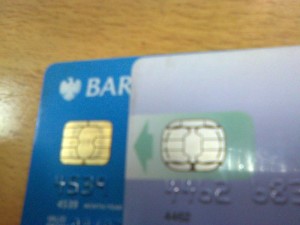August 11th, 2014 by Elma Jane
Tokenization technology has been available to keep payment card and personal data safer for several years, but it’s never had the attention it’s getting now in the wake of high-profile breaches. Still, merchants especially smaller ones haven’t necessarily caught on to the hacking threat or how tools such as tokenization limit exposure. That gap in understanding places ISOs and agents in an important place in the security mix, it’s their job to get the word out to merchants about the need for tokenization. That can begin with explaining what it is.
The biggest challenge that ISOs will see and are seeing, is this lack of awareness of these threats that are impacting that business sector. Data breaches are happening at small businesses, and even if merchants get past the point of accepting that they are at risk, they have no clue what to do next. Tokenization converts payment card account numbers into unique identification symbols for storage or for transactions through payment mechanisms such as mobile wallets. It’s complex and not enough ISOs understand it, even though it represents a potential revenue-producer and the industry as a whole is confused over tokenization standards and how to deploy and govern them.
ISOs presenting tokenization to merchants should echo what security experts and the Payment Card Industry Security Council often say about the technology. It’s a needed layer of security to complement EMV cards. EMV takes care of the card-present counterfeit fraud problem, while tokenization deters hackers from pilfering data from a payment network database. The Target data breach during the 2013 holiday shopping season haunts the payments industry. If Target’s card data had been tokenized, it would have been worthless to the criminals who stole it. It wouldn’t have stopped malware access to the database, but it would been as though criminals breaking into a bank vault found, instead of piles of cash, poker chips that only an authorized user could cash at a specific bank.
A database full of tokens has no value to criminals on the black market, which reduces risk for merchants. Unfortunately, the small merchants have not accepted the idea or the reality and fact, that there is malware attacking their point of sale and they are being exposed. That’s why ISOs should determine the level of need for tokenization in their markets. It is always the responsibility of those who are interacting with the merchant to have the knowledge for the market segment they are in. If you are selling to dry cleaners, you probably don’t need to know much about tokenization, but if you are selling to recurring billing or e-commerce merchants, you probably need a lot more knowledge about it.
Tokenization is critical for some applications in payments. Any sort of recurring billing that stores card information should be leveraging some form of tokenization. Whether the revenue stream comes directly from tokenization services or it is bundled into the overall payment acceptance product is not the most important factor. The point is that it’s an important value to the merchant to be able to tokenize the card number in recurring billing, but ISOs sell tokenization products against a confusing backdrop of standards developed for different forms of tokenization. EMVCo, which the card brands own, establishes guidelines for EMV chip-based smart card use. It’s working on standards for “payment” tokenization with the Clearing House, which establishes payment systems for financial institutions. Both entities were working on separate standards until The Clearing House joined EMVCo’s tokenization working group to determine similarities and determine whether one standard could cover the needs of banks and merchants.
Posted in Best Practices for Merchants Tagged with: account numbers, bank, billing, card, card brands, card number, card present, Clearing House, data, data breaches, database, e-commerce, EMV, emvco, fraud, ISOs, Malware, Merchant's, mobile wallets, network, payment, Payment Card Industry, Security, smart card, target, tokenization, transactions
May 23rd, 2014 by Elma Jane
State senate in California is advancing a bill SB 1351, mandates April 1, 2016, that would require California-based bankcard issuers and retailers to adopt Europay/MasterCard/Visa (EMV) chip card technology. SB 1351 bill is introduced March of 2014, passed out of committee on May 6 and may be voted on by the full senate as early as tomorrow, May 22nd.
Additionally, the bill specifies that any contracts entered into by financial institutions and card brands on or after Jan. 1, 2015, would have to include the provision that any new or replacement cards issued after April 1, 2016, be EMV compliant. The rationale for the bill comes from oft-cited evidence that EMV cards substantially reduce fraud.
In April 2014, Sen. Hill stated, My legislation holds all stakeholders accountable to protect consumers from scam artists who use fake cards to game the system.
The Electronic Transactions Association, however, does not see the issue the same way. Passing a single state technology standard will open the floodgate to additional state responses and create an expensive, unsafe and inefficient myriad of technology standards, the ETA said. The ETA is urging payment professionals in California to contact their legislators and let their opinions be heard.
The bill initially mandated Oct. 1, 2015, as the deadline for EMV implementation, which is the date set by Visa Inc. and MasterCard Worldwide for retailers to be EMV complaint or face potential fines in case of fraud. The bill also makes exceptions for small retailers and convenience stores/gas stations; they have until Oct. 1, 2017, to transition to EMV.
Posted in Best Practices for Merchants, Credit card Processing, EMV EuroPay MasterCard Visa Tagged with: bankcard, card brands, card technology, cards, chip, consumers, Electronic Transactions Association, EMV, EMV compliant, EMV implementation, ETA, Europay/MasterCard/Visa, fake cards, financial institutions, fraud, MasterCard, payment professionals, retailers, scam, small retailers, technology standards, Visa Inc.

